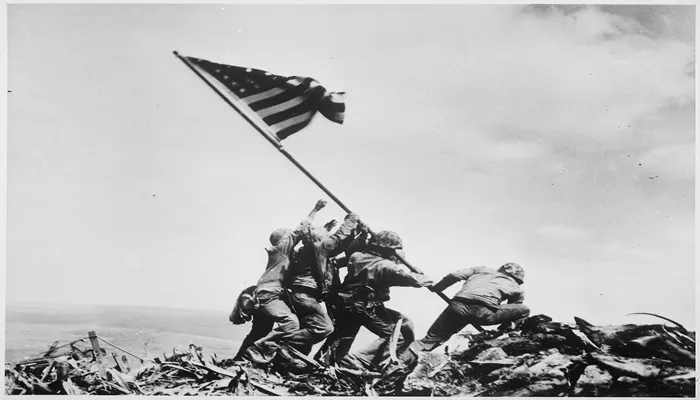February 18 has witnessed a range of significant events throughout American history, reflecting various aspects of culture, politics, and science. This article will explore notable occurrences on this date, presenting a detailed account of each event while maintaining clarity and simplicity in the narrative.
What Happened on February 18 in American History?
1861: Inauguration of Jefferson Davis
On February 18, 1861, Jefferson Davis was inaugurated as the provisional president of the Confederate States of America in Montgomery, Alabama. This event marked a pivotal moment in American history as it signified the formal establishment of a separate government by the Southern states that had seceded from the Union. Davis, a former U.S. Senator from Mississippi and Secretary of War, was chosen for his military experience and political acumen. His presidency would be characterized by efforts to unify the Confederate states and lead them through the Civil War.The Confederacy’s formation was rooted in deep-seated issues surrounding states’ rights and slavery. The Southern states sought to protect their agricultural economy, which heavily relied on slave labor. Davis’s leadership faced numerous challenges, including resource shortages and military defeats, ultimately leading to the Confederacy’s downfall in 1865.
1930: Discovery of Pluto
On February 18, 1930, Clyde W. Tombaugh discovered Pluto at the Lowell Observatory in Flagstaff, Arizona. This discovery was significant as it expanded humanity’s understanding of the solar system. Tombaugh, who was only 24 years old at the time and had no formal training in astronomy, meticulously compared photographic plates taken over several nights to identify Pluto’s position against the backdrop of stars.Pluto was initially classified as the ninth planet in our solar system but was later reclassified as a “dwarf planet” in 2006 by the International Astronomical Union. The discovery sparked interest in further exploration of outer solar system bodies and has led to ongoing debates about planetary classification.
1945: Battle of Iwo Jima
February 18 also holds importance due to its connection to World War II. On this day in 1945, U.S. Marines began their invasion of Iwo Jima, a strategically vital island in the Pacific theater. The battle aimed to capture Iwo Jima from Japanese forces to provide a base for air operations against Japan itself.The fighting on Iwo Jima was fierce and costly; it lasted until March 26, resulting in heavy casualties on both sides. The iconic photograph of Marines raising the American flag atop Mount Suribachi during this battle became a symbol of American resolve and sacrifice during the war.
1962: U.S. Cuts Military Aid
In a politically charged atmosphere during the Cold War, February 18, 1962, saw the United States cut military aid to five nations—Cuba being a primary focus—due to their trade relations with Havana. This decision reflected the U.S. government’s efforts to isolate Cuba following Fidel Castro’s rise to power and his alignment with Soviet communism.The cut in military aid was part of broader U.S. strategies aimed at containing communism globally. It underscored America’s commitment to opposing any nations that fostered ties with Cuba, which was viewed as a direct threat to U.S. interests in Latin America.
1977: Space Shuttle Enterprise’s Maiden Flight
On February 18, 1977, NASA conducted its first free flight test of the Space Shuttle Enterprise. The shuttle was mounted on a Boeing 747 Shuttle Carrier Aircraft and launched from Edwards Air Force Base in California. This test flight was crucial for validating shuttle design and performance before its eventual operational missions.The Space Shuttle program would go on to play a significant role in space exploration for over three decades, allowing for satellite deployment, scientific research, and construction of the International Space Station (ISS). The Enterprise itself never flew into space but served as an important test vehicle for future missions.
1978: First Ironman Triathlon
February 18, 1978, marked another milestone with Hawaii hosting the first Ironman Triathlon. This grueling competition required participants to swim 2.4 miles (3.86 km), bike 112 miles (180.25 km), and run a marathon distance of 26.2 miles (42.2 km) consecutively.The Ironman Triathlon has since evolved into one of the most prestigious endurance events globally, inspiring countless athletes to push their physical limits. It symbolizes not just athletic achievement but also personal perseverance and determination.
Conclusion
February 18 is rich with historical significance across various domains—politics, science, culture, and sports—reflecting pivotal moments that have shaped American history and beyond. From Jefferson Davis’s inauguration as president of the Confederacy to groundbreaking discoveries like Pluto and monumental events like Iwo Jima’s battle during World War II, each occurrence contributes uniquely to our understanding of history.As we reflect on these events each year on February 18, we are reminded not only of what transpired but also of how these moments continue to influence contemporary society and culture today.
Related Topics:

